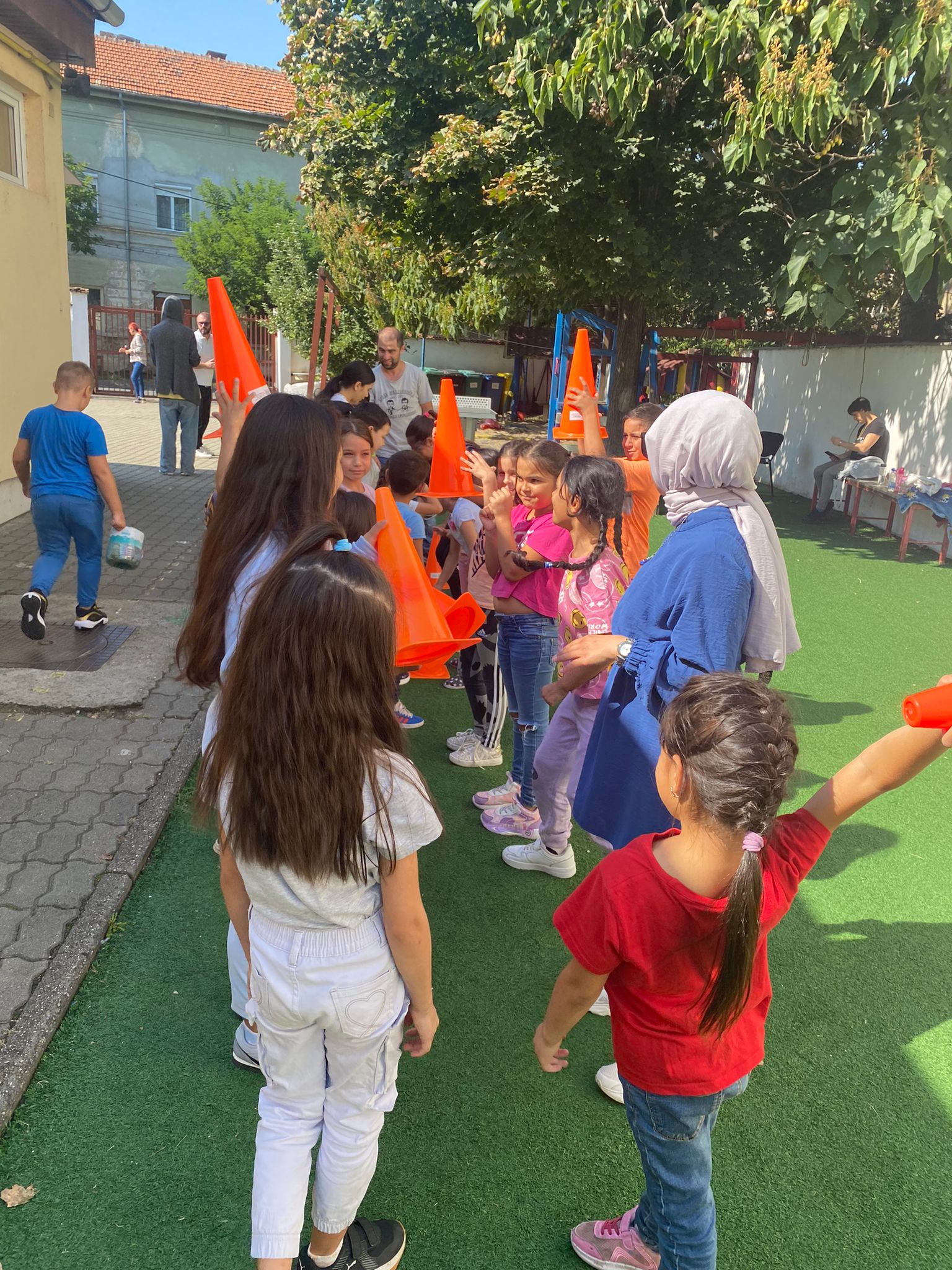We can assume that you have often heard that one person alone cannot do much. And that this statement is not entirely true is proven by teacher, Ramona Babos, from the city of Arad, Romania, who is a true heroine – not only because she is our interlocutor in this interview, but because she manages to give many small children a second chance for a happy childhood through various activities at the Curcubeu complex, where the love and dedication of many local and international volunteers meet the happiness and smiles of many children. This is certainly a story that greatly interests us, and we had the honor to converse with Ramona, who, through this interview, will take us on a journey into the joyful and happy world of the Curcubeu center, allowing us to briefly feel the happiness that reigns there.
We often hear many positive words, opinions, and experiences about your day center Curcubeu. Can you tell us more about Curcubeu?
The Curcubeu complex is a day center for children through which the Directorate for Social Assistance offers services for child protection. The mission of the center is to prevent abandonment and institutionalization of children by providing free meals during the day, care activities, education, recreation and socialization, counseling, the development of independent living skills, as well as school and professional orientation for the children. We also provide support, counseling, and education for parents or legal representatives. The number of children benefiting from the Curcubeu complex is 76.
You collaborate with the non-governmental organization Ofensiva Tinerilor, whose volunteers conduct activities with children at your day center. Can you tell us more about that and how long has this collaboration lasted?
We have an excellent collaboration with the non-governmental organization Ofensiva Tinerilor for many years; together with their volunteers, we conduct many beautiful activities. The collaboration is fruitful due to the good communication between the center’s coordinator and the organization, as well as between the coordinator and the volunteers.
How many volunteers have passed through your center so far, and what activities do they conduct with the children?
Since 2013, we have been collaborating with associations that send us volunteers, allowing us to work with hundreds of volunteers with whom we have conducted wonderful activities. The activities with the volunteers have included informal educational programs, interactive intercultural programs, handcrafted activities, and fun games.
If you look back before the start of this collaboration and compare it to the current situation, do you see a difference in the children, and if so, what exactly does it involve?
Yes, there are certainly noticeable differences in the children, as the collaboration with volunteers has a positive impact on them. First, they learn about the culture of the volunteers, which is a significant contribution for them, as they gain valuable information about the countries of origin of the volunteers, customs, and traditions. They also deal with language barriers, initially using nonverbal communication and then acquiring new words in English or in the volunteer’s native language. Socialization is also an important factor, enabling beautiful relationships to be formed between the children and the volunteers.
Surely, throughout this process, volunteers from many countries and different cultures have passed through. How do the children react when they first meet a volunteer from a country or culture they have not encountered before?
When they first meet a volunteer from a new country, the children are very curious to learn where they come from, what it’s like in their country, and what is specific to it. Younger children, right from the first introduction, throw themselves into the arms of the volunteers, as if they have known them their whole lives, and communicate with them very naturally.
And what about the end of the collaboration? Usually, children form a bond with the volunteers. How do they react when some of these volunteers leave and do not return?
The children know that the volunteers are not from their country and that at some point they must return home to their families who are waiting for them. We say goodbye, and we always welcome them back with joy when they return to the city.
What is your opinion about volunteers? Can they bring change to the community, and if so, how? Or is it simply a waste of time?
I am happy to collaborate with volunteers! They are wonderful young people who bring joy to the children every time. They are dedicated and invest themselves in everything they do with the children, and the children, in return, feel their love and commitment. Volunteers bring smiles to the faces of the children.
What are your future plans?
As for future plans, I hope for more volunteers who will bring as many smiles as possible to the children’s faces and who will love their work! That is the most important thing!
I thank you, dear volunteers, for the love and dedication you show towards the children and the coordinators for this wonderful collaboration!
We hope and believe that many past and future volunteers have had and will have many beautiful moments in the “Curcubeu” center filled with love, creating smiles and happy moments for many children.
Daniel Shikoski
our long-term volunteer in Arad, Romania

